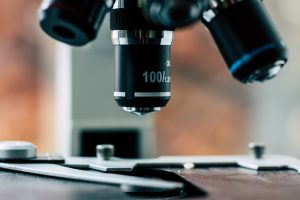The government will be working with Google on early cancer detection project.
Under a new contract with a unit of the Defense Department, Google has announced it will be embedding its cancer-detection artificial intelligence (AI) in healthcare centers in order to help guide patient care. The technology will be included in microscopes used by pathologists in Veterans Affairs (VA) hospitals and other military health facilities. The devices will help physicians study tumor biopsies in active military servicemen and women as well as veterans for detection of breast, colon, and prostate cancer.
“Google has been known for coming out with algorithms that have blown our socks away, and then they’ve done nothing with them, or at least they haven’t come out into the public domain,” said Rajiv Dhir, a pathologist at the University of Pittsburgh Medical Center who has helped develop a separate AI model for detecting prostate cancer. “Since this is a federal-private collaboration, the hope is that it leads to something.”

Mike Daniels, a vice president at Google Cloud, the division of the company working with the Defense Innovation Unit, said, “We’re applying what we’ve learned practically in this setting to see what kind of impact we can have. That’s the exciting thing. We are moving to an applied practical case of AI at the point of care to drive a better patient outcome and potentially more efficiency in the process.”
The company’s intelligence will conduct an analysis of pathology slides, highlighting portions of the slide to be reviewed. The AI will also draw boundaries around any cancerous areas.
“To go from [research and development] to clinical practice is a big gap,” said Aashima Gupta, global head of health care solutions at Google Cloud. “Just having a working model is not enough in health care. It needs to come to where it makes a difference in clinical workflow.”
Dhir said his team “opted to perform a blinded study of its AI model in prostate cancer, to evaluate whether it could perform in a clinical setting distinct from the one that supplied data used to train it.” He added the technique “is sufficient to support the use of an AI designed to give better information to doctors, rather than replace them…It gives you hot spots. It shows you areas that seem to be of concern. Then the pathologist looks at them and intersperses them in the context of everything that’s going on in that particular patient and comes up with a final diagnosis.”
One potential hurdle for pathologists using the detection technology will likely face is getting the centers for Medicare and Medicaid Services (CMS) to reimburse at higher rates. “CMS is not going to start paying money unless they start to see some value being derived from the platform or the algorithm,” Dhir said. However, he added, “I think there are a lot of [benefits] that are starting to come together from all these algorithms and AI tools being developed. I think it will enhance the quality and amount of information that can be provided.”
Sources:
Can AI improve cancer diagnosis in real patients? The U.S. military has enlisted Google to find out
Pentagon taps Google for AI project to help veterans battling cancer


Join the conversation!